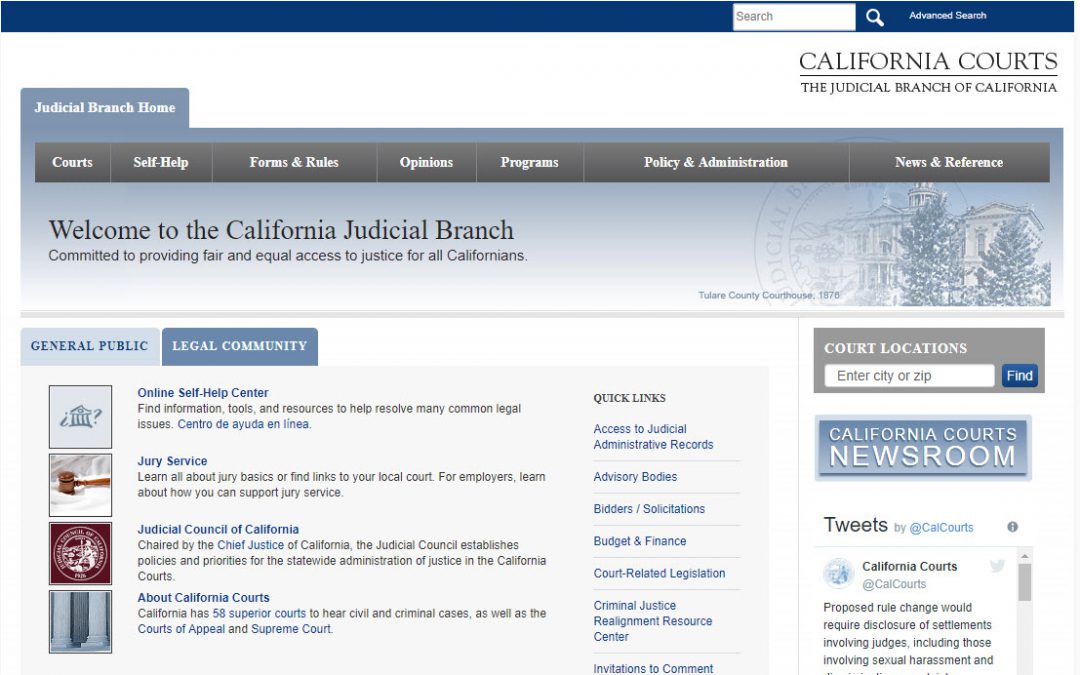In the state of California, as in most states, criminal court records are considered public records. Court records from any judicial branch may be accessed through all local and state governments, including the Department of Justice (DOJ). There are a number of ways you can retrieve court record information. There are, however, stipulations when it comes to accessing California court records. If such records are under seal or confidential, citizens are not allowed by law to obtain this information. But for the purposes of discussion, here are ways you can lookup a court case in California:
How To Apply Online
A person may go online to the California government website sd.court.ca.gov. You may retrieve many types of court records online including felony, civil, courts of appeal, mental health and even family court; misdemeanor cases will have to come through the mail:
- Access application on the website.
- Fill in as much information as you can regarding the case.
- Pay the fee by credit card, debit card or personal check.
- Submit information. (If the form comes back due to error, correct and re-submit)
- You will receive a confirmation page detailing the fee and other pertinent information.
Go In Person To Courthouse
You may also go in person to the courthouse where the file is being held. If you have no information about the case number of court dockets, you may be able to look it up on the court’s central computer:
- Fill out the appropriate application.
- You may have to wait about 30-45 minutes for the information to be processed.
- Once the case is found, you will need a picture ID and pay a fee for the service.
- You will also be given a receipt of the transaction.
Request To Mail Court Records
If need the to have court records mailed, information should be mailed to the courthouse where the case was originally tried:
- Be sure to include the number of the case, the parties involved and the documents you would like to have copied and sent.
- Send an addressed envelope with the appropriate postage.
- Keep in mind, the process of having the information mailed to you could take several weeks.
If the information is time-sensitive, you may want to use an alternate way to get the records.
Department of Justice Requirements
While the judicial system makes it very easy to obtain records, the DOJ goes about things a bit differently:
- Go to the DOJ website and fill out a request form.
- Aside from the basic information, you will need to provide as much about the case as possible.
If you still have any old case copies, that would be of tremendous help. Also, consider:
- The DOJ does work with time deadlines. They allow 10 days to determine whether or not they will allow you access to the files.
- They may also provide an extension of 14 days. If there is some issue with the records, you will be contacted and given an estimated date of delivery.
- If the files are approved, the DOJ will charge a fee for duplication.
- If the file is restricted, it cannot be seen by the public.
If you have any questions, feel free to contact the courthouse associated with the case or the local state courthouse.
Other resources: free court records search

